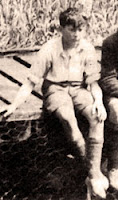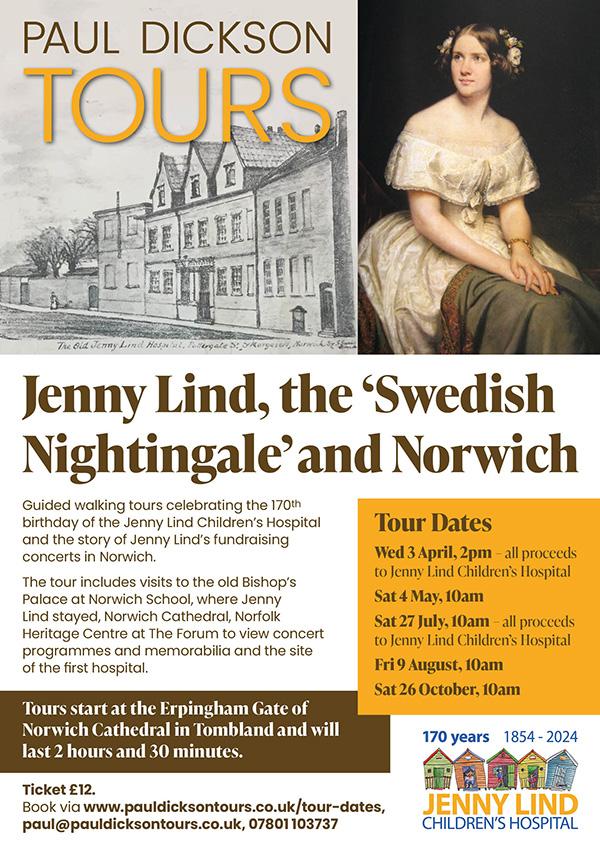Like most things in life, how any system suits an individual depends on all sorts of things, like where they live, their social standing and who they know.
Did You Know? In pr-war days, although there were a lot of people who claimed the poorer classes did not have the same opportunities as the better off, the educational system seemed to work quite well. Even today, there are some areas where that claim is as strong as ever?Children used to start school when they were five, by which time most of them were able to count to ten, knew most of the alphabet and could read and could write simple words. Generally, infant classes were mixed but when they moved into junior classes boys and girls were segregated.
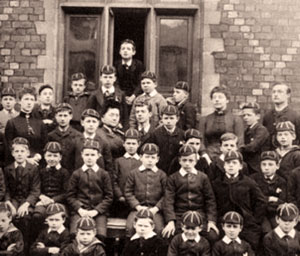 Those from the more affluent families went to a Preparatory School until they were ten or eleven when they would transfer to a Grammar School. Some, whose parents preferred them to be away from their home Town or Village, became boarders.
Those from the more affluent families went to a Preparatory School until they were ten or eleven when they would transfer to a Grammar School. Some, whose parents preferred them to be away from their home Town or Village, became boarders.
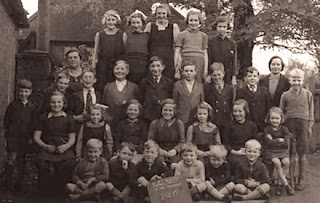 Youngsters from ordinary families were educated at the local Council or Village School where they remained until they were fourteen. That is unless they were bright enough to pass the ‘eleven plus’ exam that they were all given the opportunity to take. Those who were successful had their fees to a local Grammar School paid by the State. Five percent of pupils who had passed the scholarship had to be included in the school’s total complement.
Youngsters from ordinary families were educated at the local Council or Village School where they remained until they were fourteen. That is unless they were bright enough to pass the ‘eleven plus’ exam that they were all given the opportunity to take. Those who were successful had their fees to a local Grammar School paid by the State. Five percent of pupils who had passed the scholarship had to be included in the school’s total complement.
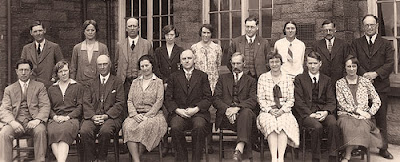 With the difference in Class and background it was often a difficult time for these young scholars. They all sat the ‘School Certificate’ when they were sixteen and some of those that passed and were able to, remained at the school until they reached eighteen when [hopefully!] they went on to University. Each school had a designated University and pupils were not given the opportunity to choose the one they preferred.
With the difference in Class and background it was often a difficult time for these young scholars. They all sat the ‘School Certificate’ when they were sixteen and some of those that passed and were able to, remained at the school until they reached eighteen when [hopefully!] they went on to University. Each school had a designated University and pupils were not given the opportunity to choose the one they preferred.
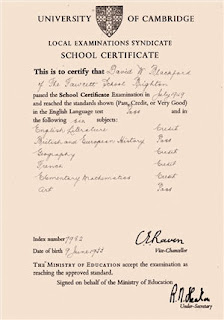 Constant changes have been implemented over the last sixty years. With each one came a claim that it was an improvement. They introduced Comprehensive schools and told us they were the best way to give children from all backgrounds equal opportunities. Although they faced opposition, some Grammar and Private schools managed to survive and prosper.
Constant changes have been implemented over the last sixty years. With each one came a claim that it was an improvement. They introduced Comprehensive schools and told us they were the best way to give children from all backgrounds equal opportunities. Although they faced opposition, some Grammar and Private schools managed to survive and prosper.
Not long after, a three tiered system was introduced. Children started at a Primary school and went on to a Middle school before moving to a High school that was similar to a Grammar school. All kinds of exams, tests and league tables have since been brought in to assess the ability and achievements of pupils, teachers and schools. During the time all these changes were being made to the system the curriculum was also revised. Some subjects were dropped and there were many new ones added.
Today, they are in the process of reverting back to a two tiered system. Seemingly very similar to the pre-war arrangement although children will now remain in education until they are eighteen. In the thirties, if they had a job to go to they were able to leave at fourteen.
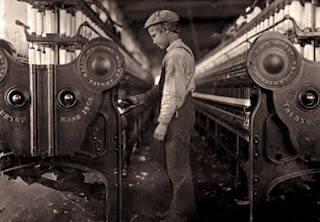 We can only wonder what comes next!? Is it beneficial for ‘all’ children to be at school for so many years? How many going on to college take a degree that guarantees them a post when they graduate? How many sixteen year olds are there still taking up a desk in the classroom who are not interested in further education or do not have the academic ability to keep up with it? Wouldn’t they be better leaving to learn a job they are happy with and can do?
We can only wonder what comes next!? Is it beneficial for ‘all’ children to be at school for so many years? How many going on to college take a degree that guarantees them a post when they graduate? How many sixteen year olds are there still taking up a desk in the classroom who are not interested in further education or do not have the academic ability to keep up with it? Wouldn’t they be better leaving to learn a job they are happy with and can do?
There’s a lot to be said for the old fashioned way of binding apprentices for a fixed period. No amount of instruction in a classroom can ever compete with experience. They can’t all be Lawyers, Doctors or some sort of white collar worker. There is still essential manual work to be done and there must be a place and an opportunity for every man and woman to have a job and earn a living.
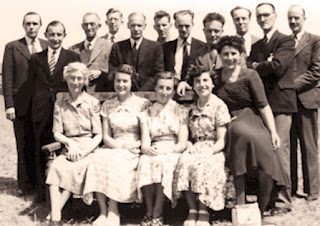 All our efforts to give children from different walks of life an equal chance in life seem to fall short. No doubt they always will! Every child is unique and wants something different from life. No two in any classroom share the same desires or outlook nor are they intellectually equal.
All our efforts to give children from different walks of life an equal chance in life seem to fall short. No doubt they always will! Every child is unique and wants something different from life. No two in any classroom share the same desires or outlook nor are they intellectually equal.
On top of which there are further major influences today that never had to be considered in the past. It has become extremely difficult for teachers and many parents to know how to correct children when they misbehave. There are those that believe they should not be punished at all but just guided in the right direction.
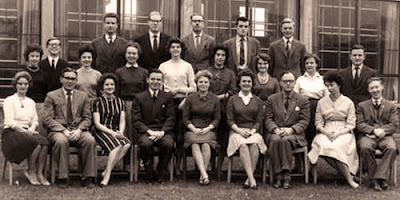 As I recall my childhood, it was always more fun to do naughty things and often very boring trying to be good. We quickly learned to assess the risk and consequences of our behaviour knowing full well that if we did wrong we would be punished. Most youngsters had a great deal of respect for the people in charge who had to discipline them. It was all part of our learning to grow up and conform in a society.
As I recall my childhood, it was always more fun to do naughty things and often very boring trying to be good. We quickly learned to assess the risk and consequences of our behaviour knowing full well that if we did wrong we would be punished. Most youngsters had a great deal of respect for the people in charge who had to discipline them. It was all part of our learning to grow up and conform in a society.
Social and family life has altered dramatically over the last forty years and the changes that have to be taken into account must have a big effect on children of all ages. Many no longer have a settled home life like the one their predecessors enjoyed. Before they ever started school they had learned the basis of discipline from the example set by their parents and other members of the family.
Who do our youngsters have to mime and mimic today? – Is it the Stars and Icons that the media present and build up and up before dissecting them without mercy? – Perhaps they are more likely to follow and copy each other!
If they do they will probably reduce or even cut off the avenues from which a solid guidance and learning might have come. – That, of course, would have been from their Teachers and others who are trained and dedicated to their well being.
 Thank goodness with every generation we seem to have a nucleus of both young and old who naturally determine right from wrong and have the character to take over and lead from the front. Who was it that said, ‘There are no bad children, only some are better than others!’
Thank goodness with every generation we seem to have a nucleus of both young and old who naturally determine right from wrong and have the character to take over and lead from the front. Who was it that said, ‘There are no bad children, only some are better than others!’
valley lad – [THIRTY]